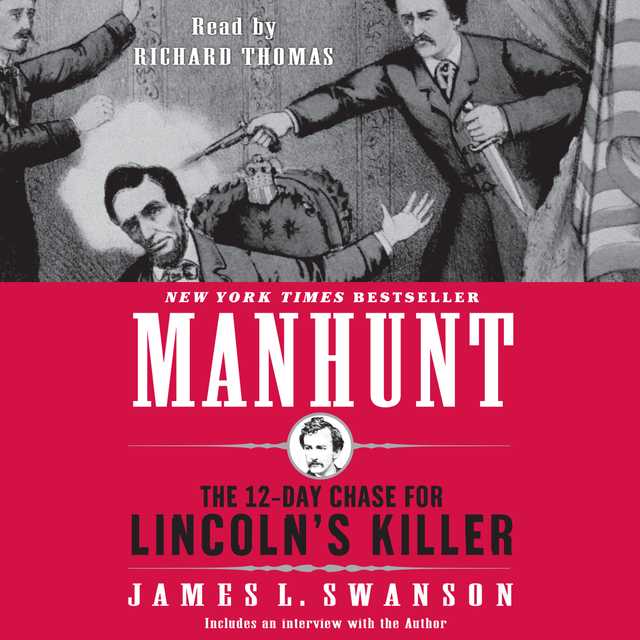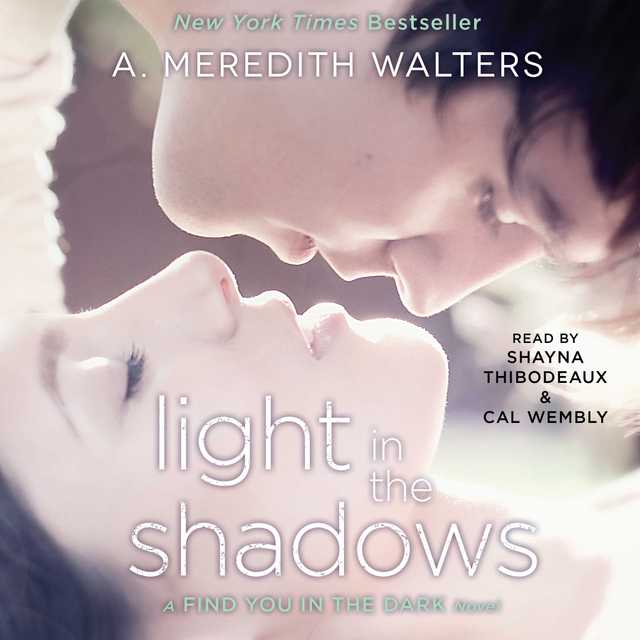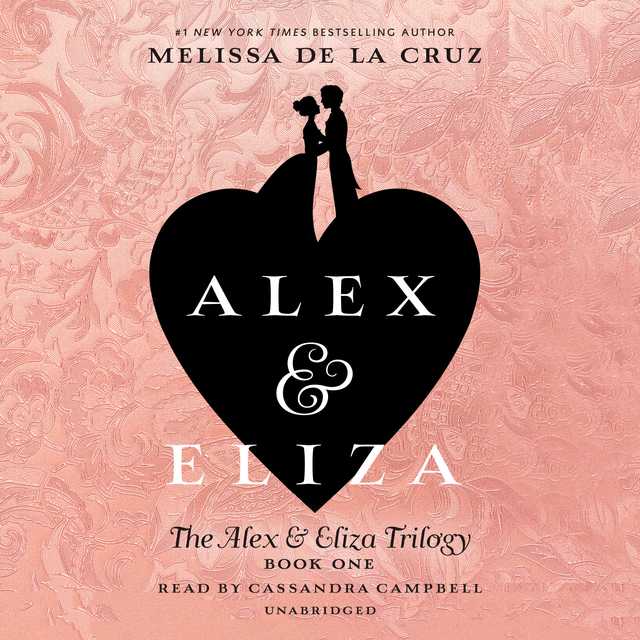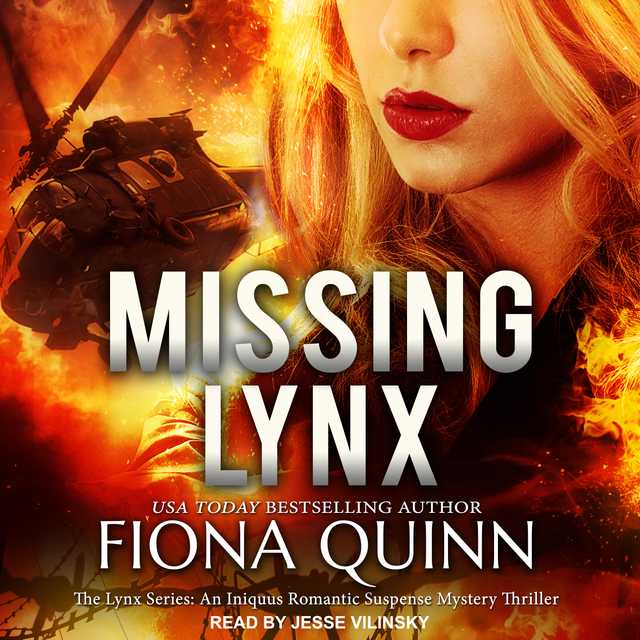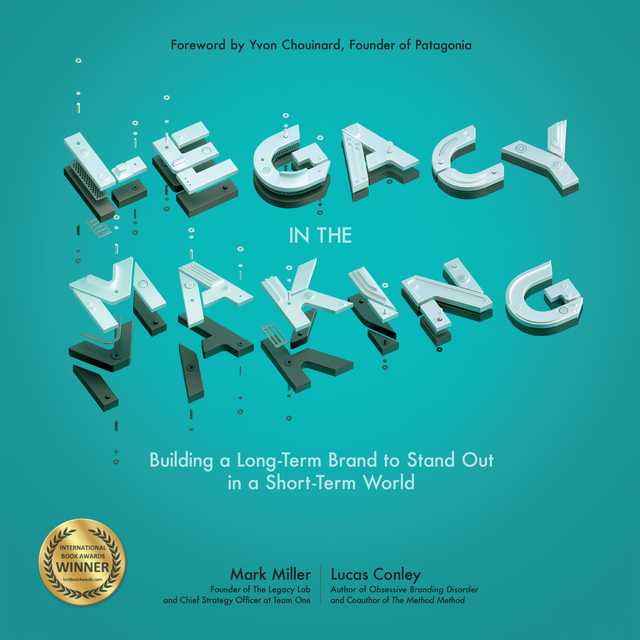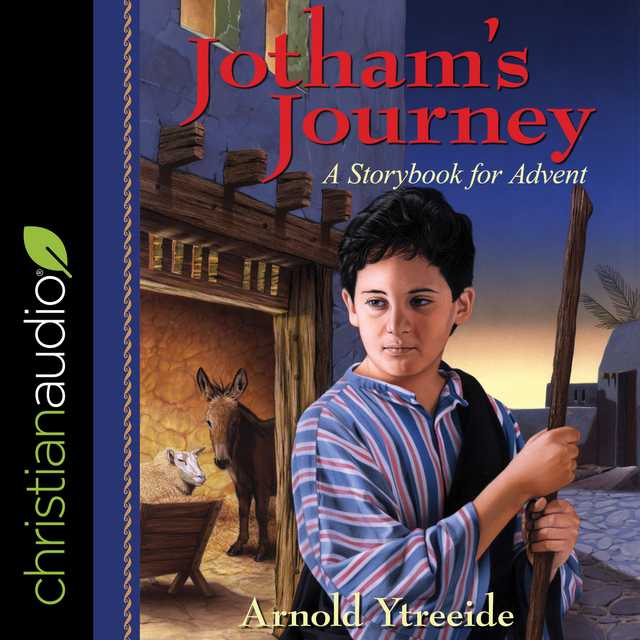Manhunt Audiobook Summary
The murder of Abraham Lincoln set off the greatest manhunt in American history — the pursuit and capture of John Wilkes Booth. From April 14 to April 26, 1865, the assassin led Union cavalry troops on a wild, twelve-day chase from the streets of Washington, D.C., across the swamps of Maryland, and into the forests of Virginia.
At the very center of this story is John Wilkes Booth, Americas notorious villain. A confederate sympathizer and member of a celebrated acting family, Booth threw away his fame, wealth, and promise for a chance to avenge the Souths defeat. For almost two weeks, he confounded the manhunters, slipping away from their every move and denying the justice they sought.
Manhunt is a fully documented work, but it is also a fascinating tale of murder, intrigue, and betrayal. A gripping hour-by-hour account told through the eyes of the hunted and the hunters, this is history as youve never read it before.
Other Top Audiobooks
Manhunt Audiobook Narrator
Richard Thomas is the narrator of Manhunt audiobook that was written by James L. Swanson
Richard Thomas, in addition to his Emmy-award winning work on The Waltons, has starred in well over 40 television series and specials, among them Roots: The Next Generation, Law and Order SVU, and The Practice; he has also starred in numerous classic and contemporary plays around the country and on the London and Broadway stage, most recently in Richard Greenbergs A Naked Girl on the Appian Way.
About the Author(s) of Manhunt
James L. Swanson is the author of Manhunt
More From the Same
- Author : James L. Swanson
- Manhunt
- End of Days
- Bloody Crimes
- Publisher : HarperAudio
- Abraham
- American Gods [TV Tie-In]
- Dead Ringer
- House of Sand and Fog
- Prey
Manhunt Full Details
| Narrator | Richard Thomas |
| Length | 9 hours 9 minutes |
| Author | James L. Swanson |
| Category | |
| Publisher | HarperAudio |
| Release date | February 07, 2006 |
| ISBN | 9780061134685 |
Additional info
The publisher of the Manhunt is HarperAudio. The imprint is HarperAudio. It is supplied by HarperAudio. The ISBN-13 is 9780061134685.
Global Availability
This book is only available in the United States.
Goodreads Reviews
Will
April 13, 2022
After Booth did his thing at Ford’s theater, it took the combined forces of the United States, Virginia, Maryland, private pursuers and even Confederate soldiers to track down Booth and his partner in crime. Swanson gives us a beautifully detailed blow-by-blow of the actions that took place before, during and after the killing. There was material in here that was new to me, namely that the assassination of Lincoln was not the only one planned for the day, or the only one attempted, or that Booth was killed instead of captured, and that there was a group of co-conspirators who were hanged for the offense.James L. Swanson - image from Googleplay Of course, as someone who does not know much about the period, it would not take a lot to constitute new material. Still, this was an engaging read, showing multiple sides of many of the characters involved, delving into motivation, looking at seamy as well as heroic sides, tracking the minutiae of the many steps and people involved in Booth’s flight. In telling this tale, the author also provides us with a window on a particular time in American history, what life was like, what the values of the day were. “One more stain on the old banner,” Booth yelled, conjuring the Confederate flag as he prepared to face his pursuers (The Meserve-Kuhnhardt Collection) - image from SmithsonianThis could certainly make an interesting Hollywood film. I understand that Harrison Ford had an option on it, but that has run out. I do not know if anyone else has picked that option up. =============================EXTRA STUFFLinks to the author’s Twitter and FB pagesThe FB page does not appear to have been updated since 2015The March 2015 issue of Smithsonian Magazine includes several articles about the assassination. In The Blood Relics, Swanson writes about the moment when he decided to write Manhunt and what items remain from the event. There are several more articles relating to Lincoln's assassination in this issueThis review is reposted ever year in commemoration of the April 14th assassination of Abraham Lincoln
Mariah Roze
September 09, 2017
I love this author and I'm trying to read every book by him, so of course I needed to read this one and I am so glad I did. James is a fantastic writer that writes for all abilities and understandings. A fascinating tale of murder, intrigue, and betrayal. A gripping hour-by-hour account told through the eyes of the hunted and the hunters, this is history as you've never read it before.The murder of Abraham Lincoln set off the greatest manhunt in American history -- the pursuit and capture of John Wilkes Booth. From April 14 to April 26, 1865, the assassin led Union cavalry and detectives on a wild twelve-day chase through the streets of Washington, D.C., across the swamps of Maryland, and into the forests of Virginia, while the nation, still reeling from the just-ended Civil War, watched in horror and sadness. Lincoln was murdered by John Wilkes Booth, who was an actor. He threw away his fame and wealth for a chance to avenge the South's defeat. For almost two weeks, it turned into a manhunter, because he was always one step ahead of the police. James used rare archival materials to help him write this book. It was fantastic and I suggest it to everyone!
Tim
March 08, 2022
This book reads like a well-paced murder mystery novel. It was fun to read and I gobbled it up quickly.The book does not really give much background historical information, as it says laser focused on the story of the assassination (including the attempts on the lives of the Secretary of State and Vice President) and the 12-day chase of the perpetrators. This was probably the right decision, as it kept the book fast paced with dramatic intensity throughout. But there were a lot of things mentioned in passing I was curious to get more details on. I didn’t get a great sense of what exactly would motivate Booth to sacrifice his successful career and comfortable life. It’s difficult to imagine what it would be like today if someone of comparable fame successfully assassinated the President. I didn’t come away from the book feeling like I understood the motivations of Booth and his conspirators, other than in very general terms.A couple other small things come to mind that piqued my interest as it was mentioned in the book but wasn’t discussed in depth. There was an aborted kidnapping attempt that Booth and others tried prior to the Ford’s Theater assassination that I wanted to hear more about. Also, mob violence erupted in various spots after the assassination, where people who celebrated Lincoln’s death, or were suspected of being involved, were subjected to brutal vigilante justice, including murders. But I’d much rather read a book where I was interested the whole time, and left hungry for more details, than being bored with something I am slogging through, so I can’t ding the book for not always satisfying my curiosity. I’d recommend this if you want something with the breezy feel of an action story, but about a real historical event.
Matt
September 16, 2008
This was positively Shakespearean. Not in the poetry, but in the sheer drama of it. The plotting, the conspiracy, the murder. Swanson does a terrific job of cobbling together a stunningly complete and compelling narrative of Booth's time on the lam while armies hunted for him, all from interviews with the subjects, court transcripts, newspaper accounts, and other books written by those involved at at the time. He reveals the roots of Booth's motivation, and his ego, along with that of his co-conspirators and those who hunted them all. Just a great yarn here.Just before I finished it, I was in Washington, DC, and while I'd never much thought of it before, this time I couldn't resist a walk up 10th Street to Ford's Theater, where Lincoln was shot. It was closed for renovations. But just across the street is the narrow home where Lincoln was taken just after he was shot to avoid the ignominy of dying in such an immoral venue as a theater, and on Good Friday at that. The room where Father Abraham died was about the size of the newsroom cubicle I share with my editor.One final observation. One of the subtler revelations of this book is the intimacy of Washington in Lincoln's time. In Swanson's description, it was like a small town where everyone knew everyone and could approach anyone. Only some of the residents happened to be the President, the Secretary of State, the Vice President, the Secretary of War. People would call to Lincoln from the White House lawn, and he would open a window and give a quick speech. All that stands in stark contrast to the barricades on Pennsylvania Avenue today.Of course, it was what happened to Lincoln that spoiled that small town intimacy, and all the trust that went with it.
Gerry
April 06, 2021
I had always known since schooldays that John Wilkes Booth had assassinated President Abraham Lincoln but I had no idea of the background and the follow-up to his action.'Manhunt' most certainly clears that little matter up for it is a stupendous account of the 12-day chase for the killer as well as setting the scene for the deed and giving later detail about what happened to the various key locations in the story.Once begun it is difficult to put down, for the action rolls on and on without let up, so much so that it reads like a thriller with something startling on page after page.James L Swanson has captured the characters admirably, covers the geography superbly and the action intensely. Booth made a thrilling retreat from Ford's Theatre and then had some narrow escapes before he finally made it to Virginia where he thought that he would be safe ... how wrong he was.As the author says in one of his notes, which are not too intense and do lend themselves to being read at the back of the book, it is not an encyclopedia of the assassination but it is certainly a dramatic account of the events of 14 to 26 April 1865 on an hour by hour, day by day basis. Thoroughly recommended.
Brian
February 20, 2016
“Manhunt: The 12-Day Chase for Lincoln’s Killer” is a book that has been on my radar since it was published and I finally got around to reading it. I can easily say that it was an excellent read and well worth the time.The author, James L. Swanson, writes in a very easy going colloquial style. In fact, there are times in the text where the writing seems a little too simplistic, but those are just fleeting moments. Mr. Swanson is very good at creating moments of tension and high drama. This is all the more remarkable because the story he is telling is so well known. The moment of Lincoln’s assassination and Booth’s death in the Garrett barn are two of the best examples of these kinds of moments in a text filled with such scenes.This text is well researched and documented (extensive bibliography and Notes sections). I read a lot on the Civil War and have for years and there were many many things about the assassination and its aftermath that I had never come across before. I love when that happens!“Manhunt” is as accessible and thorough an account of Abraham Lincoln’s assassination as is currently available and I highly recommend it. I will be picking up Swanson’s sequel to this text, “Bloody Crimes”, very soon.
Michelle
May 16, 2012
I enjoyed the book and learned ever so much more about that point in our history than I ever did in school. I appreciate the accounts were taken from primary sources, newspapers and other research - for that reason I have more confidence in the intrepretation by Swanson. I certainly recomend it for people who learned a light version of the events, like myself, and have a curiosity as to what could drive a person to assassinate a president.
Will
November 02, 2017
One of my favorite non-fiction reads of all time. Thrilling and full of surprising facts about the events and characters involved.
Christopher
February 06, 2015
There's something magical about a book that is so thoroughly and meticulously researched, yet reads effortlessly and with great entertainment value. It's so easy to make history feel stuffy and dry, but this book is far from it. This is the illuminated kind of nonfiction, aiming more for portraying life than delivering data into the reader's head. Perhaps not for history buffs, but more for people like me, who got solid Bs in history class because text books are so much less interesting than collections of Fox Trot comic strips.Somewhere in the middle of the chase, when Booth and his accomplices were encountering some travails in their lam, I had to reexamine my morals. I love the story of a fugitive, and I found myself rooting for Booth. Uh oh. Did I just wish that the murderer of one of the only presidents of the United States with a respectable beard would get off free of scot? One of only five bearded presidents?! (Now, that's not to diminish his other incredible accomplishments, not the least of which is the abolition of slavery. Their are myriad reasons he was one of the best presidents this country has seen. But that beard!, not an ostentatious or pretentious one, just the beard of a man of simple pleasures, a man who realizes there are better things to do than to start one's day with the infliction of razor burn. Such a man does not deserve death at the hand of a coward.)The point is, I'm not on Booth's side. The other point is, this book is written in such an engaging way that you might get confused about that, if only for a moment, and forget that this is indeed something that happened in the real world. It's simply too intriguing to be history.
Carol
February 26, 2021
I was halfway through this before I thought to post a review. It is amazing! I loved Fortune's Fool, the biography of John Wilkes Booth. But this book is really everything they say it is and more. It's a crime thriller, an adventure story, and an amazing portrait of America in the Civil War era. The one thing I can't describe is how well James L. Swanson writes. There's a passage where one of Booth's followers is cornered, and holding a pickaxe. Swanson describes exactly how much damage he could have done before he was overpowered, and he has you hanging on every word. It's like Stephen Hunter at his best!
Richard
January 23, 2015
This book solidly succeeds in the genre of works that promise to be of compelling reading to the non-history-minded reader while being based on solid historical research. James L. Swanson, a historian and attorney in Washington D.C., shows his knowledge of everything Abraham Lincoln. He provides a new twist to the subject of Lincoln's assassination and aftermath in a field which is jammed to the rafters with Civil War/Lincoln books. Swanson's twist in writing of this period of national distress is his use of a style akin to that of a crime reporter. He doesn't sensationalize as much as he uses a narrative style designed to keep the story moving and the reader engrossed in finding out how events unfold to the ultimate conclusion, when Lincoln's assassins were brought to justice. The title, "Manhunt", says it all. This is as compelling a chase story as "The Fugitive," only it's over a hundred years earlier, and based on real events. It is no secret that the book no sooner took its place on the best-seller list than speculation began spreading about who would play the parts of the characters in a movie based on it. It was rumored the main pursuer of the criminals would be played by, guess who, Harrison Ford. Even Swanson has joined in, with his wish to have Johnny Depp play John Wilkes Booth. Making the pursuit of the killers of Abraham Lincoln the focus of the book places Booth in the central role. Swanson provides biographical background on Booth, as the upcoming popular actor son of the century's most famous actor, Junius Brutus Booth. John Wilkes was a southern sympathiser during the Civil War. He spent time plotting grand crimes against the federal government while he toured the country as an actor. He used his considerable persuasive skills to enlist a group of co-conspirators who would meet in Virginia, Maryland and the District of Columbia. A meeting location was Mary Surratt's tavern, and one of Booth's confidants was her son, John. Booth hatched a wild plan during 1864, while the Civil War raged, to kidnap President Lincoln and deliver him to the Confederate government, in an effort to demoralize the North and possibly end the war. That plan never reached fruition, but Booth's hatred to the North and toward Lincoln only intensified, reaching its climax at the end of hostilities in the spring of 1865. General Robert E. Lee had surrendered Confederate forces and the South's capital of Richmond had been captured. It was only a matter of time until Southern President Jefferson Davis and his cabinet were captured, and the war would be over. Public displays of triumph and relief of the end of the war were being held throughout the North, while southerners were left to think about their fate. Booth had already decided. He would decapitate the leadership of the federal government by killing the Secretary of State, William Seward; Vice President Andrew Johnson; and the President. Booth's plan, audacious as it was, succeeded in its most important element and only failed to succeed due to his associates' lack of ability to perform their tasks. You have to admit that Booth almost couldn't ignore devising some sort of assassination plan, what with his hatreds, and the president's publicized desire to attend the popular Laura Keene play at Ford's Theater in Washington. Booth knew every inch of the theater and was known and trusted by its staff as a great actor who had performed there. The assassins' plans were to simultaneously kill the vice president at his hotel and the secretary of state at his home, where he was recuperating after a serious carriage accident, while Booth stole into the almost unguarded private box of Lincoln at Ford's. George Atzerodt lost his nerve and didn't attack Johnson, while Lewis Powell bluffed himself into Seward's home and savagely attacked him. Seward miraculously survived his wounds but Booth was successful in shooting a bullet into the back of Lincoln's head and seriously injuring an army major in his box with a knife before escaping the theater.There is so much that happened after the attacks, and Swanson is up to the task of keeping us glued to the pages as Booth slipped out of a Washington still guarded by military sentries and made a run on horseback, with his young associate David Herold toward Virginia. The conspirators would spend time living in a pine thicket while arranging with sympathizers to cross the Potomac River into Virginia.Swanson relates many details of how this story only gets more interesting with age. There is the injured Booth, running sometimes ahead of the slow-moving news of the day, hoping to open a newspaper describing him as a hero; the great American tragedy of Lincoln, unconsious but struggling for an entire night in a bed while slowly dying; the Secretary of War, Edwin Stanton, who spent every minute of that night by Lincoln's side, while, already, using his considerable wartime powers to commandeer all of the available resources of the U.S. government to hunt down the killers; the southerners, who knowingly or unknowingly aided Booth until he arrived at the farm of the Garrett's, who were unaware of what he had done; Booth's defiant refusal to surrender inside a corn crib at the Garrett farm that had been set on fire by pursuing soldiers, and his being shot, against orders, by a soldier named Boston Corbett; the life-long lasting celebrity status of Corbett for shooting Booth; Booth's night-long death watch on the Garrett porch, mirroring the ordeal he had put Lincoln through less than two weeks previous. It's possible that Booth could have been captured alive there, (Herold did surrender), but he knew by then he was in the last act of his own tragedy. Stanton's dragnet later captured all of the conspirators. They were found guilty for their association with Booth in a military tribunal. One of the most interesting scenes of Swanson's to me was the dispatching of Major General Winfield Scott Hancock, a true hero of the Civil War, to the Old Arsenal Penitentiary with the death sentences of Lewis Powell, Mary Surratt, David Herold and George Atzerodt. The spirit of revenge against anyone remotely associated with Booth led to the arrests of numerous other people. Farmer Garrett himself was thrown in prison. Also jailed, for a time, was Ford's owner, John T. Ford. He was released after thirty-nine days, but Stanton ordered his theater confiscated and its interior gutted. The marvelous restoration of Ford's Theater in the 1960's meticulously reproduces the theater's appearance from the night Lincoln was killed. It had been used for years as a government office building (Ford was reimbursed for the building by the government in 1866). Unbelievably, the excessive load of tons of government office equipment caused all of the floors to collapse during 1893, killing twenty-two workers and injuring scores more. The most publicized case of alleged collateral guilt by association with Booth concerns the case of Dr. Samuel Mudd. Booth arrived at the Mudd farm with Herold while in flight from the assassination. Mudd set Booth's broken leg and arranged for a local carpenter to build a set of crutches; both fugitives rested at the Mudd home over night and left the following day. Mudd was later arrested, tried and convicted of conspiracy for aiding Lincoln's conspirators. Mudd narrowly missed receiving a sentence of hanging, and instead was sentenced to life in prison. He served his sentence at Fort Jefferson in the Gulf of Mexico, near the Florida Keys. His heroic efforts of saving inmates and staff of the prison during a yellow fever epidemic in 1867, taking over the prison's medical responsibilities from the dead prison's doctor, won him release from confinement by President Andrew Johnson in 1869. Mudd's grandson, Dr. Richard Mudd, has spent decades trying to prove Mudd's innocence and obtain a presidential pardon for him. The Mudd family's position was reflected in a 1980 movie, "The Ordeal of Dr. Mudd", starring Dennis Weaver in what I believe was the best performance of his career. The viewpoint portrayed was of a doctor who followed his professional ethics in setting a leg of a person in need, without being told how the injury occurred. Dr. Mudd's predicament was very moving but, in Swanson's opinion, a little too disingenuous. Swanson points out that Mudd had had contact with Booth in December, 1864, in Bryantown Maryland, near the Mudd farm, when the Lincoln kidnap plot was being hatched. He also met with Booth a month later in Washington. Investigators who followed up on Booth's activities prior to the assassination found out about these meetings. Mudd gave a sworn statement admitting his November meeting, without admitting any ulterior motive, and omitting his December meeting with Booth. Just as damning was Mudd's failure to notify authorities in Maryland of his involvement with Booth after newspapers carrying the assassination news and Booth's identity were being circulated in his town. These deceptions were enough to convict him of conspiracy; Swanson doesn't buy the revisionist version of events from the Mudd family.We know that Abraham Lincoln was elevated from great leader to folk hero by the manner of his death. Swanson's book sets the record on his killer, Booth, who committed a despicable act and yet became a legendary dramatic figure who continues to captivate readers of history. Many people wish he had never lived, while, Swanson notes, there are those in the South who still celebrate his life. Even the restored theater which commemorates the crime against Lincoln also serves as a Booth museum. Such is history's disdain of neatly wrapped endings.
Most Popular Audiobooks
Frequently asked questions
Listening to audiobooks not only easy, it is also very convenient. You can listen to audiobooks on almost every device. From your laptop to your smart phone or even a smart speaker like Apple HomePod or even Alexa. Here’s how you can get started listening to audiobooks.
- 1. Download your favorite audiobook app such as Speechify.
- 2. Sign up for an account.
- 3. Browse the library for the best audiobooks and select the first one for free
- 4. Download the audiobook file to your device
- 5. Open the Speechify audiobook app and select the audiobook you want to listen to.
- 6. Adjust the playback speed and other settings to your preference.
- 7. Press play and enjoy!
While you can listen to the bestsellers on almost any device, and preferences may vary, generally smart phones are offer the most convenience factor. You could be working out, grocery shopping, or even watching your dog in the dog park on a Saturday morning.
However, most audiobook apps work across multiple devices so you can pick up that riveting new Stephen King book you started at the dog park, back on your laptop when you get back home.
Speechify is one of the best apps for audiobooks. The pricing structure is the most competitive in the market and the app is easy to use. It features the best sellers and award winning authors. Listen to your favorite books or discover new ones and listen to real voice actors read to you. Getting started is easy, the first book is free.
Research showcasing the brain health benefits of reading on a regular basis is wide-ranging and undeniable. However, research comparing the benefits of reading vs listening is much more sparse. According to professor of psychology and author Dr. Kristen Willeumier, though, there is good reason to believe that the reading experience provided by audiobooks offers many of the same brain benefits as reading a physical book.
Audiobooks are recordings of books that are read aloud by a professional voice actor. The recordings are typically available for purchase and download in digital formats such as MP3, WMA, or AAC. They can also be streamed from online services like Speechify, Audible, AppleBooks, or Spotify.
You simply download the app onto your smart phone, create your account, and in Speechify, you can choose your first book, from our vast library of best-sellers and classics, to read for free.
Audiobooks, like real books can add up over time. Here’s where you can listen to audiobooks for free. Speechify let’s you read your first best seller for free. Apart from that, we have a vast selection of free audiobooks that you can enjoy. Get the same rich experience no matter if the book was free or not.
It depends. Yes, there are free audiobooks and paid audiobooks. Speechify offers a blend of both!
It varies. The easiest way depends on a few things. The app and service you use, which device, and platform. Speechify is the easiest way to listen to audiobooks. Downloading the app is quick. It is not a large app and does not eat up space on your iPhone or Android device.
Listening to audiobooks on your smart phone, with Speechify, is the easiest way to listen to audiobooks.

